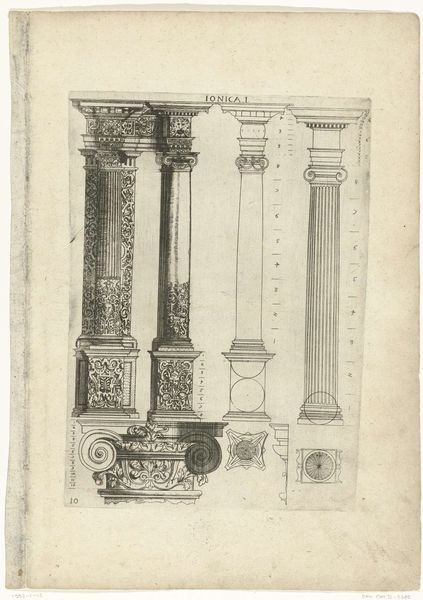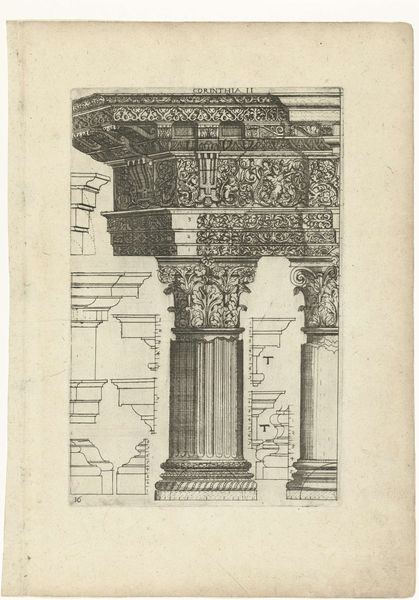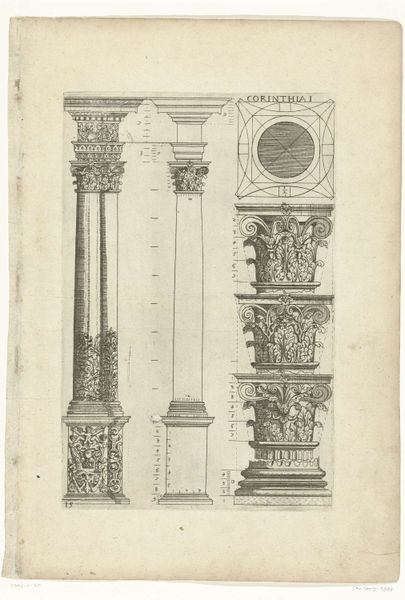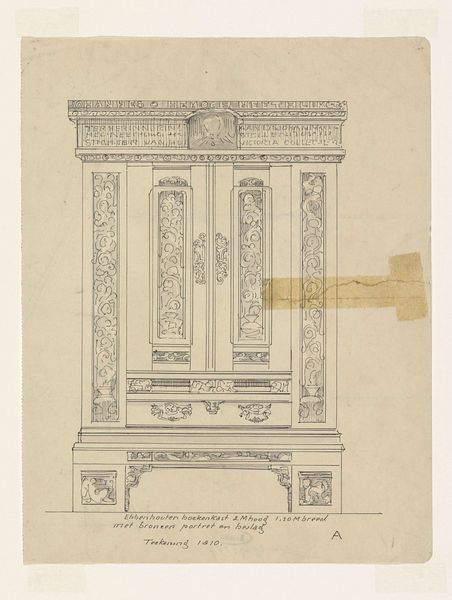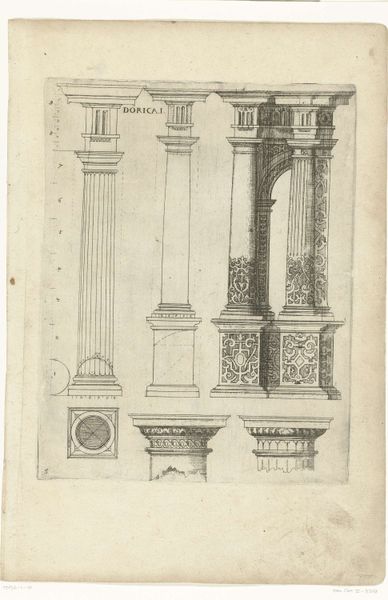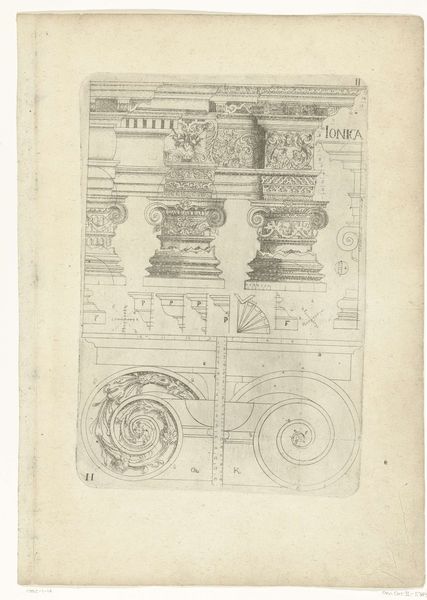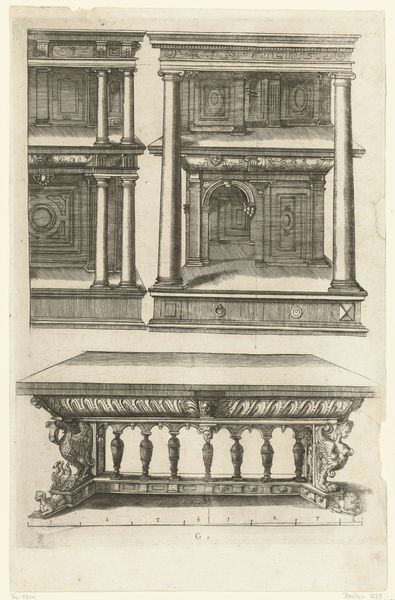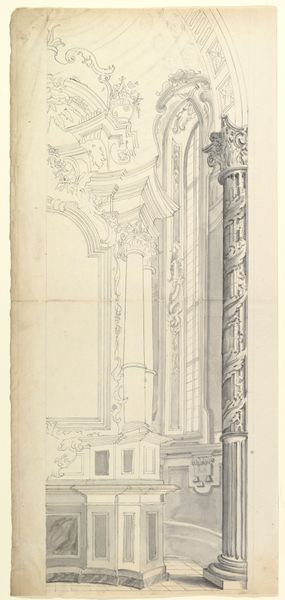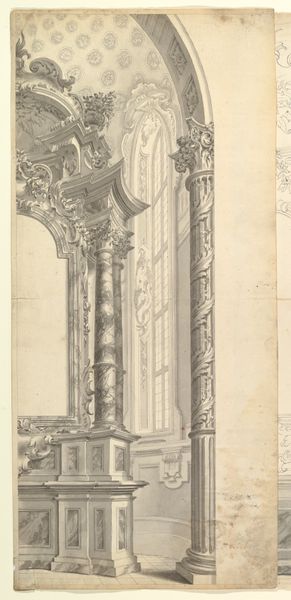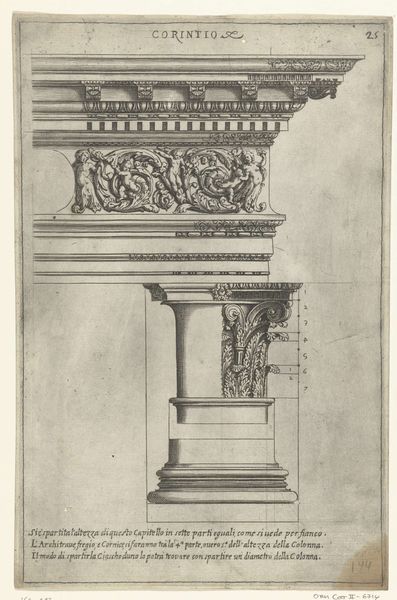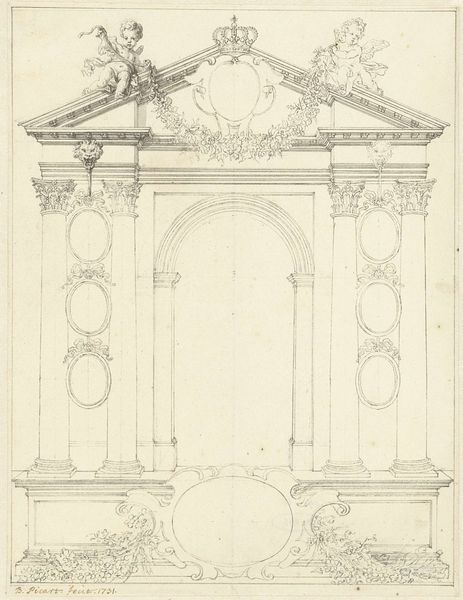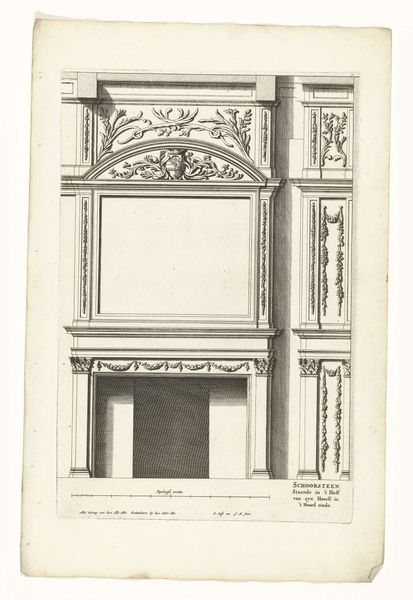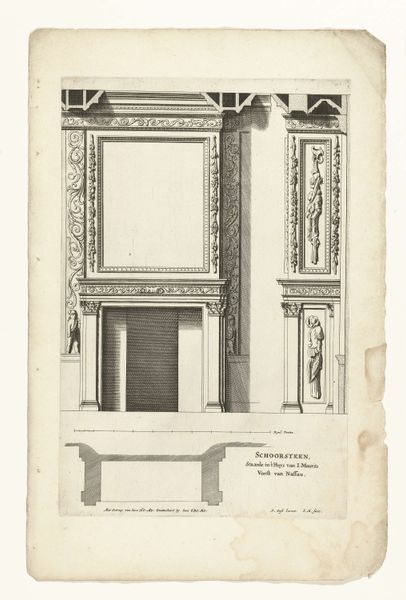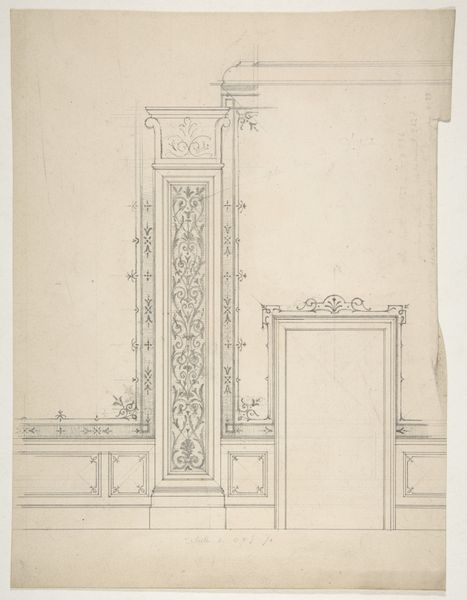
drawing, print, engraving, architecture
#
drawing
#
aged paper
#
toned paper
#
light pencil work
# print
#
old engraving style
#
sketch book
#
classical-realism
#
form
#
11_renaissance
#
personal sketchbook
#
geometric
#
pen-ink sketch
#
line
#
pen work
#
sketchbook drawing
#
academic-art
#
sketchbook art
#
engraving
#
architecture
Dimensions: height 280 mm, width 185 mm
Copyright: Rijks Museum: Open Domain
Here we have "Composiethoofdgestel, drie kapitelen, twee zuilschachten met voetstukken," an undated drawing by Gabriel Kramer. Kramer, who died in 1611, lived in a time when the Dutch Republic was emerging, marked by burgeoning trade and a rising merchant class, profoundly influencing artistic patronage and expression. This drawing is not merely an architectural study; it's a glimpse into the era's embrace of classical ideals filtered through a distinctly Dutch lens. During the period these sketches were made, the architecture of public buildings and the homes of the wealthy were being constructed in the style of this drawing. Columns of this kind symbolized stability and power within the ever-evolving societal structures. Consider how the detailed renderings of capitals and pedestals speak to the era's emphasis on precision and order, reflecting a society in search of balance. What emotions arise as you consider the blend of meticulous craftsmanship and societal ambition embodied in this piece?
Comments
No comments
Be the first to comment and join the conversation on the ultimate creative platform.
